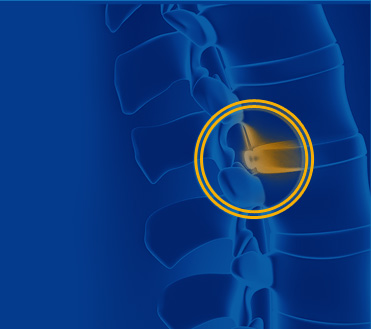
Intervertebral discs act as cushions between each vertebra in your spine. They consist of a solid fibrous outer ring and of a pulpy, gelatin-like core inside.
Discs become herniated when their outer ring tears and allows the pulpy core to protrude outwards. This usually compresses the nerve roots in the area.
Here are the main signs and symptoms of herniated discs:
MAIN SIGNS AND SYMPTOMS OF HERNIATED DISCS
LUMBAR (LOWER-BACK) HERNIATION
- Acute or chronic lower-back pain
- Numbness or electric-shock sensation in the back
- Numbness/tingling in the buttock, thigh, leg or foot, on one or both sides
- Possible discomfort when sneezing, coughing and having bowel movements
- Possible loss of strength in lower limbs
- Possible loss of feeling in lower limbs
- Possible loss of reflexes in lower limbs
CERVICAL (NECK) HERNIATION
- Acute or chronic neck pain
- Numbness or electric-shock sensation in the neck
- Numbness/tingling in the shoulder, arm, forearm or hand, on one or both sides
- Possible discomfort when sneezing, coughing and having bowel movements
- Possible loss of strength in upper limbs
- Possible loss of feeling in upper limbs
- Possible loss of reflexes in upper limbs


